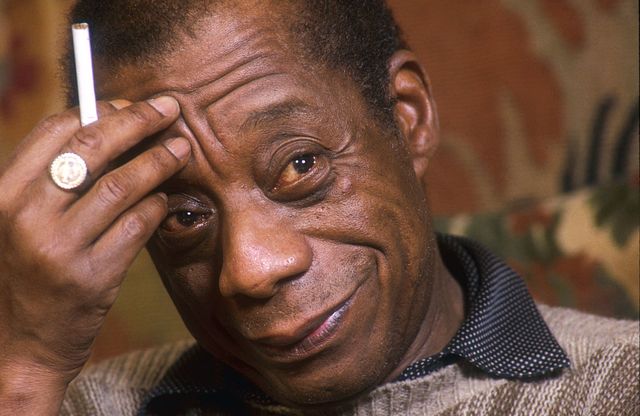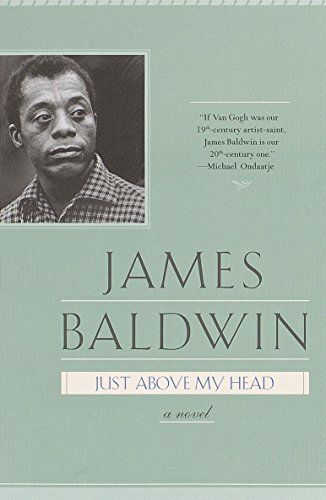Watch a Never-Before-Aired James Baldwin Interview From 1979
Buried by ABC at the time, the segment reveals a unique glimpse into Baldwin’s private life—as well as his resounding criticism about white fragility, as blisteringly relevant today as it was in 1979.

In 1979, up-and-coming television producer Joseph Lovett scored the opportunity of a lifetime. Just a few months into his stint at 20/20, ABC’s upstart television news magazine, Lovett was assigned a profile of James Baldwin, pegged to the publication of Baldwin’s nineteenth book, Just Above My Head. Lovett was “beyond thrilled” to tell the titanic American writer’s story—but it’s taken until 2021 for that interview to see the light of day. Buried by ABC at the time, the segment has resurfaced over four decades later, revealing a unique glimpse into Baldwin’s private life—as well as his resounding criticism about white fragility, as blisteringly relevant today as it was in 1979.
When Lovett received the assignment, he was excited to meet one of his heroes: “I had been reading [Baldwin] since I was a teenager. I thought he was brilliant and brave and speaking to the moment of history that we were all living in. I was thrilled; I was beyond thrilled.”
Lovett and his crew arrived early, woke Baldwin, shared breakfast with him, and rolled the cameras before Baldwin, a heavy drinker, had a chance to imbibe. “He hadn’t had a drop to drink and he was brilliant, utterly brilliant,” Lovett said. “We couldn’t have been happier. He was such an eloquent, masterful speaker, with such a great mind. It was such a privilege.”
Conducted by the late Sylvia Chase, the interview took place at 137 West 71st Street—the Manhattan apartment building Baldwin bought for himself and his family in 1965, following the success of his early books. It showcases rare footage of Baldwin relaxed and gregarious at home, surrounded by a large and close-knit family. In a private conversation with Baldwin’s mother, Emma Berdis Baldwin, in the kitchen of her apartment, Chase asked if she always knew that her son would be a wildly successful writer; Baldwin's mother responded, “I didn’t think that. But I knew that he had to write.”
Advertisement - Continue Reading Below
The segment also takes viewers behind the scenes of Baldwin’s play, The Amen Corner; during a rehearsal for the Lincoln Center production, Baldwin is shown beaming as he watches the performers. The production was produced and directed by Val Gray Ward, founder of Kuumba Theater, who is featured in the clip along with her Kuumba cast. To see Baldwin laughing and smiling in the thick of rehearsal is a welcome, joyful sight. Yet it’s his words about white fragility and white fear that rise above the 1979 milieu, remaining achingly relevant all these years later.
“White people go around, it seems to me, with a very carefully suppressed terror of Black people—a tremendous uneasiness,” Baldwin said. “They don’t know what the Black face hides. They’re sure it’s hiding something. What it’s hiding is American history. What it’s hiding is what white people know they have done, and what they like doing. White people know very well one thing; it’s the only thing they have to know. They know this; everything else, they’ll say, is a lie. They know they would not like to be Black here. They know that, and they’re telling me lies. They’re telling me and my children nothing but lies.”
The far-ranging interview was a resounding success, and Lovett was eager to see it air. Yet as he was called away on other assignments, including interviewing Michael Jackson, nothing came of the Baldwin segment. When he inquired about the delay, ABC reported that it had been scrapped, because, “Who wants to listen to a Black gay has-been?”
“I was stunned,” Lovett said. “I was absolutely stunned, because in my mind, James Baldwin was no has-been. He was a classic American writer, translated into every language in the world, who would live on forever, and indeed he has. His courage and his eloquence continue to inspire us today.”
In a portion of the segment filmed at the Police Athletic League’s Harlem Center, Baldwin addressed a group of student reporters, telling one young student, “Nobody wants a writer until he’s dead.” Uncovering this interview over forty years later, Baldwin’s unnerving words seem frighteningly prescient. Lovett will discuss the 20/20 segment further on June 24 at 8:00 PM, when he moderates a free virtual panel titled James Baldwin: Race, Media, and Psychoanalysis, featuring psychoanalysts Annie Lee Jones and Victor P. Bonfilio, as well as Aisha Karefa-Smart, Baldwin’s niece. RSVP here to help Baldwin’s legacy live on.

No comments:
Post a Comment